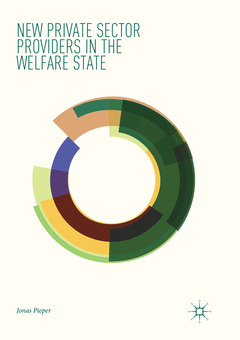Description
New Private Sector Providers in the Welfare State, 1st ed. 2018
Author: Pieper Jonas
Language: English
Subjects for New Private Sector Providers in the Welfare State:
Keywords
welfare state politics; private sector providers; privatization; National Health Service NHS; life insurance industry; pension providers; power resources index; Welfare industry; marketization; welfare state reforms; private pensions; privatization of social policy provision; Department for Work and Pensions; Department of Health; Deutsche Krankenhausgesellschaft; Deutsche Volksfürsorge; Gesamtverband der Deutschen Versicherungswirtschaft (GDV); public policy provision; social policy
Approximative price 105.49 €
In Print (Delivery period: 15 days).
Add to cartPublication date: 08-2018
Support: Print on demand
Publication date: 11-2017
Support: Print on demand
Description
/li>Contents
/li>Biography
/li>Comment
/li>
These books may interest you

The Politics of the Welfare State 129.87 €



